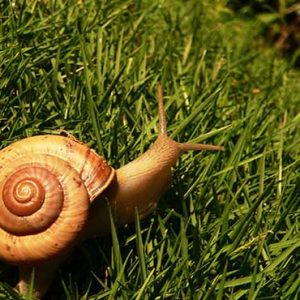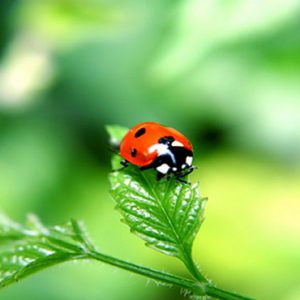COMMENTARY
A Physician’s Guide to the Cannabidiol Craze
Last month at the Columbia University Department of Psychiatry in upper Manhattan, Columbia chief psychiatry resident Dr Angela Coombs interviewed addiction expert Dr Diana Martinez on a number of issues related to the rising popularity and usage of cannabidiol (CBD).
Angela Coombs, MD: Hi. My name is Dr Angela Coombs and I’m a chief resident here at Columbia. We are so happy to be able to have Dr Diana Martinez, who’s a professor in psychiatry at Columbia and an expert in addiction psychiatry. Today we are talking about CBD.
Diana M. Martinez, MD: I’m glad to talk about it. This is one of my favorite topics.
Coombs: I think everyone wants to know, off the bat, when it comes to CBD, what are the medical indications? What do we know about its use for different illnesses?
Martinez: The main thing you can say about CBD is that we unfortunately know very little about it in humans. Out of the gate, the most important thing to know about CBD is that there is promise, based on animal and preclinical studies. There are some studies being done in human volunteers that suggest it has medicinal effects.
But for the most part, we don’t know a lot about it and we certainly don’t have great sources of CBD available to people and patients out there. Those are, I think, the biggest issues.
Coombs: It seems like there’s a concern about knowing where to direct patients, particularly when a patient comes to you and says they’re interested in trying CBD, whether for anxiety, pain, or another condition. If they were to go pick up CBD, where should they purchase it? Where should they not be purchasing it?
Martinez: I am asked this question a lot. For the most part, I say to my patients or colleagues who ask about their patients that the CBD
-

Happy Ninja
£18.00 Ajouter au panier -

Happy Ninja
£35.00 Ajouter au panier -

Ninja Silhouette
£20.00 Ajouter au panier -

Patient Ninja
£35.00 Ajouter au panier -

Premium Quality
£20.00 Ajouter au panier -

Ship Your Idea
£30.00 Ajouter au panier -

Ship Your Idea
£12.00 Ajouter au panier -
Promo !

Woo Logo
Le prix initial était : £20.00.£18.00Le prix actuel est : £18.00. Ajouter au panier -

Woo Ninja
£20.00 Ajouter au panier -

Woo Ninja
£35.00 Ajouter au panier
If I were buying CBD, I would go to websites of companies that post the certificate of analysis, which lists the amount of CBD contained in the product plus contaminants. You want to see if they test for pesticides, heavy metals, and these kinds of things. For the most part, I would say the best product that I’ve seen is from Colorado because of the testing that Colorado does.
You also want to make sure that the certificate of analysis is from an outside laboratory, that the company posts which laboratory tested it, and that they post the date that the CBD was tested. Remember, these are plant products, so there’s a lot of variability from batch to batch. That certificate of analysis needs to be done on a very regular basis.
Coombs: Maybe it would be helpful for our audience if we take a step back. In your opinion, what are some of the most promising opportunities for CBD use?
Martinez: At this point, what we know about CBD in human patients is that it’s effective for seizures, specifically in children with Dravet syndrome or Lennox-Gastaut syndrome who didn’t respond to other medications. That’s a very selective crowd and it was a very high dose of CBD that was effective in those children, on the order of about 1000 mg.[1,2]
There is some evidence[3] in patients with schizophrenia, showing that CBD is helpful in reducing some of the positive symptoms of schizophrenia. Importantly, those studies are conducted in patients who are taking their medication. It’s not a replacement for antipsychotics, but it seems to be helpful as an adjunct of therapy. Those data still need to be strengthened a little bit more.
After that, we get into a very big gray zone. There is a little bit of research[4] that has been done on anxiety. This has been done mostly in healthy volunteers who are made anxious by doing things like talking in front of a camera or in front of a group of people, and are given placebo or CBD. There is evidence showing that CBD did decrease anxiety, but again, does that translate to a patient with an anxiety disorder? It’s not really clear.
There has been some research done in patients with social anxiety disorder.[5] Again, it tends to be showing a single dose of CBD decreasing anxiety, and it was a small study. One of the biggest things you’ll hear is that CBT is useful for anxiety. It may be. There’s some evidence to support it, but there aren’t any placebo-controlled studies with large numbers of ill patients and patients with anxiety disorders supporting that. Many patients and people on the street do take it for anxiety. Is it a placebo effect? It may be. We don’t know.
Coombs: For a patient coming in to see you who is very motivated to get access to CBD, what recommendations do you give them when it comes to dosing or administration?
Martinez: I’m very clear to say that the dosing is largely unknown. The studies in anxiety suggested that around 300-600 mg was effective in the healthy controls, so that’s the dose range that is probably needed.
If you go online and buy CBD, often people will spend $50 on a bottle that has 50 mg of CBD. That’s not going to do much. You have to be careful about how much people are taking.
The other thing to know about CBD is that the studies in epilepsy patients[1,2] did show that there are interactions with liver metabolism, the CYP system, of other medications. Again, these are pediatric patients taking other antiepileptic drugs and 1000 mg of CBD.
We don’t know whether lower doses of CBD interact with other medications, but patients should be careful. Certainly, if you’re taking somewhere in the range of hundreds of milligrams, you need to think about these things, such as whether CBD interacts with antipsychotics or antidepressants.
Coombs: I know that one question you definitely are asked often by people who might not have much exposure to CBD is, first of all, is it even legal?
Martinez: That is a question that, at this point, I can’t even answer. I follow that closely because it’s important for my research to know the legality of it, because that determines how we obtain approvals to do our studies. At this point, I really can’t answer that question. I used to try, but between the Farm Bill, the DEA, and the FDA, you get different answers, so it’s really unclear.
It is more important to know whether it will be regulated rather than whether it is legal. That is also unclear, but I think that’s an important question because there is some real promise for CBD in terms of treating various disorders. It should be regulated, especially if patients are going to use it. That’s where, I would say, there is a big hole.
Coombs: Thank you so much for your time. This has been really helpful.
I’m Dr Angela Coombs. This is Medscape with Columbia University’s Department of Psychiatry. Thank you so much.
References
- Devinsky O, Cross JH, Laux L, et al. Trial of cannabidiol for drug-resistant seizures in the Dravet syndrome. N Engl J Med. 2017;376:2011-2020. Source
- Mazurkiewicz-Beldzinska M, Thiele EA, Benbadis S, et al. Treatment with cannabidiol (CBD) significantly reduces drop seizure frequency in Lennox-Gastaut syndrome (LGS): results of a multi-centre, randomised, double-blind, placebo-controlled trial (GWPCARE4). Program and abstracts of the 32nd International Epilepsy Congress; September 2-6, 2017; Barcelona, Spain. Epilepsia. 2017;58(Suppl 5)1085-1096.
- McGuire P, Robson P, Cubala WJ, et al. Cannabidiol (CBD) as an adjunctive therapy in schizophrenia: a multicenter randomized controlled trial. Am J Psychiatry. 2018;175:225-231. Source
- Shannon S, Lewis N, Lee H, Hughes S. Cannabidiol in anxiety and sleep: a large case series. Perm J. 2019;23:18-041. Source
- Blessing EM, Steenkamp MM, Manzanares J, Marmar CR. Cannabidiol as a potential treatment for anxiety disorders. Neurotherapeutics. 2015;12:825-836. Source
Medscape © 2019 WebMD, LLC
Any views expressed above are the author’s own and do not necessarily reflect the views of WebMD or Medscape.
Cite this: A Physician’s Guide to the Cannabidiol Craze – Medscape – May 31, 2019.